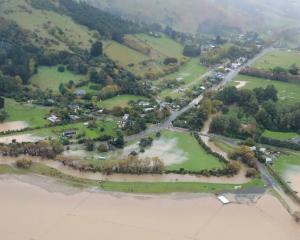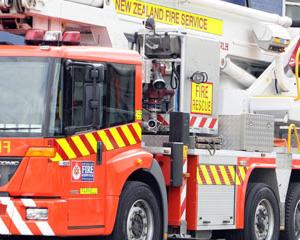
Sir Bob Jones is being remembered for his intellect, humour and as a complex character in tributes following his death.
The businessman and politician died in his home at the age of 85, the general manager of Robert Jones Holdings confirmed on Friday.
Prime Minister Christopher Luxon said Sir Bob was "a living legend of New Zealand".
"To think, a guy who started off in a state house became one of our most successful business leaders, had an interlude and had a massive impact on a 1984 election with the New Zealand Party.
"He had just an acerbic wit and just a very, very quick and clever and highly intelligent man, so he's a huge loss for New Zealand and I really just wish him and his family nothing but the very, very best from all of us in New Zealand.
"He was just someone I admired hugely, because I came through a period in time where he was really at the forefront of New Zealand business in the late '80s and as a young kid learning economics and accounting, he was one of our sort of great business leaders, going off and doing quite bold things."
On social media the New Zealand Taxpayers' Union posted "Rest in mischief, Sir Bob" saying New Zealand was duller without him.
Sir Bob "championed free speech, smaller government, and good humour in public life", as well as being "a generous supporter of the Taxpayers' Union", it said.
Act Party leader David Seymour posted "RIP Sir Bob. The world is a duller place without you".
Blogger, pollster and political commentator David Farrar told RNZ's Afternoons he began reading Sir Bob's books when he was at school and thought they were hilarious.
Jones imposed himself on the New Zealand consciousness like few other businesspeople of his time.
He amassed a multibillion-dollar portfolio of commercial buildings in Auckland, Wellington, and Glasgow, Scotland, as well as forming a political party to challenge Robert Muldoon's National Party.
Born in Lower Hutt into a poor but talented family, he won a boxing blue at Victoria University but dropped out to work in advertising and publishing.
In 1964, he founded the property firm Robert Jones Investments which he floated on the stock exchange in 1982.
It grew to be one of New Zealand's biggest companies but, while it survived the crash of 1987, its share price never recovered.
In 1983, he formed the New Zealand Party with the aim of bringing down the Muldoon National government.
The party, with a mix of free market economics and anti-defence policies, split the National vote and helped the David Lange-led Labour Party to win the 1984 election.
It won 12 percent of the vote in 1984, contributing to the size of the Labour landslide.
All the while, he was often in the media with his views on issues from boxing to the arts and the meaning of life in a state house.
He appeared constantly in the broadcast media and public debates, ran radio talkback shows, and wrote books, and a column published in more than 20 newspapers.
Jones was involved in one of New Zealand's most-remembered television events from the 1980s.
Reporter Rod Vaughan and cameraman Peter Mayo had helicoptered to where Jones was fly fishing in the Tongariro River near his property to ask him questions.
Footage showed blood pouring from Vaughan's face after he was hit with a left hook by Jones.
His court cases were legion, ranging from defamation suits to disputes over property contracts.
Jones went to court several times for defamation. In the 1984 election he stood in the Ohariu seat against a National cabinet minister Hugh Templeton who distributed a pamphlet listing a number of groups which he said Jones despised including wmen, bureacrats, civil servants and professionals. Jones won and the case set precedents in defamation law at the time.
He was appointed a Knight Bachelor in the 1989 Queen's Birthday Honours for services to business.
But in 2018 he sued over a petition calling for his knighthood to be revoked. It had arisen over a column he wrote in the National Business Review which he said was satirical and argued Waitangi Day should be renamed Maori Gratitude Day. He went to court but withdrew the case after a few days.
But Bob Jones also had a social conscience, and helped fund many groups, from women's refuges to the New Zealand Ballet.
He was also a lifelong boxing fan and appeared as a commentator and expert, and was heavyweight boxer Joseph Parker's manager early on.













